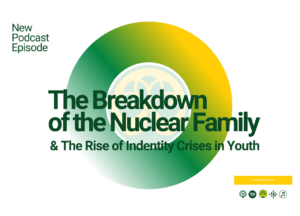“Happiness is the meaning and the purpose of life, the whole aim, and end of human existence.” – Aristotle
The modern world is obsessed with the concept of happiness.
Almost 1,600 years later, most people still agree. Almost everything we do in life is done to fulfil a desire to be content with our lives. We have made the pursuit of happiness the aim of our lives, yet we are not getting any happier.
Amid our quest for seeking satisfaction in life, we end up seeking solace in chasing worldly successes and accumulating materialistic possessions. We buy what we do not need because it makes us feel better. We work harder, for the next promotion, so we can buy even more because it makes us feel even better. We have become socially conditioned to think that the more we have, the happier we will become.
Yet, this pursuit of happiness leads to nothing but inner emptiness.
When we are unable to live up to the standards of a materialistic life, we end up in a constant state of misery, anxiety, and depression. Our madness for materialism would be more forgivable if there was any proof that it really did lead to happiness – all evidence fails to prove this. In Australia, the use of antidepressants has been increasing for decades, with Australia rising as one of the world’s highest consumers – 1 in 10 Australians take some form of antidepressant medication every single day.
His Holiness, Hadhrat Mirza Masroor Ahmad (May Allah be his Helper), the fifth Caliph of the Ahmadiyya Muslim Community, eloquently describes this phenomenon: “Often, at a superficial level, people can appear to be happy and content. Yet, though they have ‘outward peace’, they remain bereft of ‘inner peace’.” His Holiness said that despite having worldly possessions and wealth, people are still “…plagued by anxiety and their hearts remain unfulfilled. The reality is that until a person attains inner peace, their material comforts are worthless.”
Worldly pursuits seldom provide lasting satisfaction.
It goes without saying, one thing money cannot buy or superficial endeavours cannot sustain is the inner peace that comes from a meaningful life. People often experience anxiety and depression when these goals are not achieved.
Rather than pursuing temporary, limited fulfilment, the teachings of Islam elaborate on the beauty of an everlasting, eternal sense of peace. A pursuit of happiness that truly guides one on how to be happy. When a religion claims to be a way of life replete with solutions to all of life’s challenges it must, therefore, also pivot itself upon the basis of human nature and psychological reasoning. Modern-day psychology concurs with the fifth-century concept of the human psyche explained by Islam.
Islam first and foremost, acknowledges that we are naturally driven to improve our position in life.
Islam explains that we are unique and will always be naturally driven towards a venerated goal: “And everyone has a goal to which he turns his whole attention…” (Ch.2:V.149). This is the basic nature of the human psyche, and Islam recognises these feelings as a natural part of life. Alfred Adler, a renowned twentieth-century psychologist also rationalised that humans have a tendency to strive towards self-created goals: “… [the] first thing we discover in the psychic trends is that the movements are directed toward a goal… This teleology, this striving for goals is innate in the concept of adaptation.”¹
However, Islam emphasises that these sentiments need to be sensibly maintained in order to lead a peaceful, gratifying life, without the need to feel inferior or superior to others. The key to a happy life is maintaining a healthy balance between worldly, materialistic pursuits and those that enhance our consciousness to become a better person, as the Prophet of Islam elucidated “be moderate in seeking worldly things…”.
His Holiness Hazrat Mirza Tahir Ahmad (the fourth Caliph of the Ahmadiyya Muslim Community) describes this concept of moderation in the following words: “The ambition to rise above the common run of the people and to attain distinction is but natural. However, this natural desire to excel and rise above others, if left undisciplined and un-curtailed can become unwholesome.”
The drive to compare and compete naturally arises with the inherent desire to excel and achieve worldly endeavours. In the pursuit of an idyllic way of life, we often develop a mindset that prompts a competitive comparison of ourselves to those we idealise, which then influences our innate human behaviour of striving for supremacy. However, when this desire to become like our idols or to maintain the status quo, or even just to prove that we are better than the rest of society, starts to govern our lives, it becomes unhealthy, resulting in inner turmoil.
When our goal is to live up to the expectations of society or to achieve recognition from society, other people will always remain in control of our lives.
When we remain fixated on attaining recognition in this way, Adler explained that we end up experiencing feelings of either superiority or inferiority. What he also explained, however, was that when these same feelings are correctly harnessed then they can become natural stimulants for growth. If we use these stimulants as catalysts for self-improvement, they become a positive force for change when we self-reflect and take steps to improve our own shortcomings. This is what Islam describes as purification of the soul – to adopt humility and practically work towards adopting divine attributes.
Adler also stated, “The important thing is not what one is born with but what use one makes of that equipment.³” He explained that your choices and pursuits in life are something that you choose for yourself; therefore, if they are not something you were naturally born with, but something you chose yourself, then it must be possible to choose new ones. There is always room for growth, and it is up to us to make proper use of our provisions, whatever they may be. Similarly, the Holy Quran also states “… [the righteous] spend out of what We have provided for them.” (Ch.2:V.4).
To attain a fulfilled life, we must spend and use the faculties that God has provided us for the sake of individual progress.
Hence, the outcome of the choices we make in life are dependent on the proper use of our abilities and opportunities. This is a way of thinking that is deeply liberating, allowing us to concentrate on ourselves and develop the courage to change and ignore any limitations that we place on ourselves, without the fear of feeling inferior to others or the need for indulging our own egos or claiming any form of superiority.
This way of thinking is reinforced by the meaning of life described by Islam, which acts as a bedrock for all human progress. Islam states that the very purpose of our life is to excel in our levels of consciousness. This is described in the Holy Quran as Ibaada, which is literally translated as ‘worship’. The Arabic word Ibaada i.e. worship, means to adopt humility and to emulate the characteristics of the person we admire. This is a natural human tendency – we value and admire those who have attained worldly success and seek to attain the same for ourselves or we conform to the ideals set by society so we can fit in. More often than not, the barometer of our self-value is based on how society perceives us. When we cannot live up to this, it results in unnecessary heartache and suffering.
Islam teaches that the only being worthy of such admiration and worship is one whose attributes are perfect in every sense—God.
This in turn frees one from the restraints of societal expectations and modern-day idolatry, as our inherent value is not dependent on our likeness to the rest of society, but our likeness to God. According to Islam, this is deemed as righteousness and considered true liberation because everyone is unique in his or her likeness to God; otherwise, we would always be comparing ourselves to other mere mortals just like us. The Holy Quran describes those who understand this concept as those who exist in a true state of happiness: “Those who believe and whose hearts find comfort in the remembrance of Allah, Aye! It is in the remembrance of Allah that hearts can find comfort.” (Ch.13:V.29)
Islam further describes worship to contain two fundamental responsibilities; to fulfil the rights owed towards the Creator and that of His creation. By fulfilling the rights owed to God, we improve our self-consciousness towards becoming better humans by modeling ourselves on Godly characteristics. By using those characteristics to fulfill the rights owed towards His creation, we serve and contribute to the wellbeing and progress of our surrounding society. Adler’s description of the fundamental constituents of behaviour which result in happiness is also the same, he states: “There are two objectives for behaviour: to be self-reliant and to live in harmony with society.” This is in essence what Islam preaches, to worship only one God is to be self-reliant and not be overcome by the pressures of society. Rather, to utilise our faculties for the service of humanity is to live in harmony with society.
Islam strongly emphasises that: “the most honourable among you, in the sight of God, is he who is the most righteous among you.” (Ch.49:V.14). To become more righteous means that we try and emulate the characteristics of God within ourselves. Rather than fulfilling a need to impress or idolise other mortal beings, when goals are set for the purpose of self-improvement and individual progress, a healthy pursuit of excelling each other ensues, where each individual strives to become a better person and recognises their own individual qualities and unique distinctiveness. The Holy Quran acknowledges this inherent aspiration for greatness by stating: “And everyone has a goal to which he turns his whole attention; therefore, vie with one another in goodness.” (Ch.2:V.149) This short verse has in it an essential lesson on how to tame the innate human desire for supremacy and also the secret to societal progress.
In order to lead a progressive and content life, the quest for excelling with each other in righteous conduct is the ultimate means to attain success within this life.
There is no limit to the progress one can achieve; no one is bound by any limitations and in the pursuit of individual progress, each individual actively contributes to the progress of society by acting as a catalyst for the progress of others… “Those who believe, and do good works – happiness is decreed for them…” (Ch13:V.30)
In short, a pursuit for happiness that is based upon achieving communion with God leads to a meaningful, purposeful sense of satisfaction, something, which is also described in Islam as enlightenment. Until and unless we let go of our worldly fears; fear of pleasing others, fear of living up to the standards of a materialistic society, and the fear of being not enough in the eyes of others, we cannot attain true liberation that gives us peace and happiness.
His Holiness, the fourth Caliph of the Ahmadiyya Muslim Community, Hazrat Mirza Tahir Ahmad (May Allah be pleased with him) profoundly explains: “Just like a belief in the fear of God exists, so too, exists, a fear of the world and the struggle between them is one that is never-ending nor will it ever end… As such, only he is truly free who is liberated from the fear of society… One who is not free from the fear of people can never be truly free. If not today, then tomorrow, such people will fall prey to becoming slaves of this world. Therefore, I advise my friends – liberate your consciousness from the indecency of this world and develop a fear of God in your hearts…”
This fear of God is not the feeling of being afraid of imminent danger; rather, it is the feeling of reverence that is born out of gratefulness and love of God. “Man cannot live at peace with himself nor can peace be vouchsafed for society without this formula; no other formula can work. It is only the love of God which can bring about true respect for His creation.”
The ultimate philosophy of Islam is to let go of naive and egotistical pursuits and acknowledge no other motive than the realisation of our higher purpose.
This alone creates harmony with the Creator and His creation – enabling the achievement of a pure form of happiness. As we accept our uniqueness, emancipate ourselves from the shackles of society, and become one with God, we ultimately become the source of liberation for others.
Our deepest fear is not that we are inadequate.
Our deepest fear is that we are powerful beyond measure.
It is our light, not our darkness
That most frightens us.
We ask ourselves
Who am I to be brilliant, gorgeous, talented, fabulous?
Actually, who are you not to be?
You are a child of God.
Your playing small
Does not serve the world.
There’s nothing enlightened about shrinking
So that other people won’t feel insecure around you.
We are all meant to shine,
As children do.
We were born to make manifest
The glory of God that is within us.
It’s not just in some of us;
It’s in everyone.
And as we let our own light shine,
We unconsciously give other people permission to do the same.
As we’re liberated from our own fear,
Our presence automatically liberates others.
Marianne Williamson



